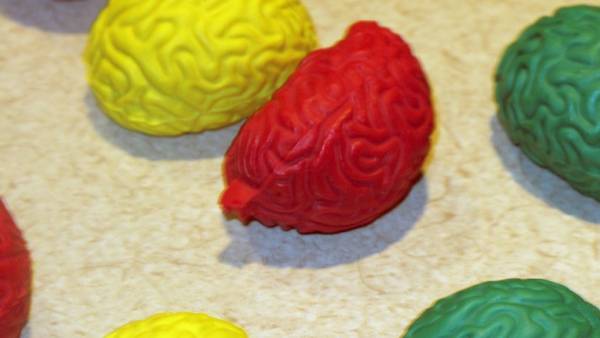12 puzzles and paradoxes of pain
Despite the fact that all living beings feel pain (scientists are not yet sure about amoebas), we never figured out what it is, and how its manifestations are objective, and how the function of our consciousness.

We all know that pain is an objective reality, but perception of it is deeply subjective. The pain may be a symptom and disease, and mental and physical. How close are we to understanding what it is?
Sharp, dull, sudden, chronic, aching, throbbing, blinding… This is not a complete list of epithets that we did not hesitate to apply, saying the feeling experienced and continue to experience the we everything: about the pain.
News A matter of life and death: a report from the intensive care unit
A matter of life and death: a report from the intensive care unit
She pays no attention to skin color, eye shape, or social status. She doesn’t care at what level of evolution is it or another creature. Pain is experienced by people, dogs, cats, dolphins, whales, birds, frogs and even scientists believe earthworms.
In this case, if the scientists say that the mechanism of the pain they are more or less clear, what it is: a signaling system issues a mandatory part of life, without which it is impossible to understand the physical and mental well-being, a purely physiological process or the result of complex chemical processes in the brain, nor the doctors, nor even the clergy to a single agreement is not reached.
We know how to work the alarm system via neurons to the brain and back, but many questions still remain unanswered.
In addition, there is a group of people who, because of genetic anomalies do not feel pain at all.
In fact, they should not be jealous, because they can easily miss the beginning of a disease and die, albeit painlessly, but completely in vain.
All our knowledge about the pain built on paradoxes.
1. Our brain registers pain signals, but he can’t feel her
The brain detects and processes pain signals from all other parts of the body, and he does not feel pain.
Let’s say you sprained an ankle, or burned his finger. Nerve fibers immediately send a signal to your brain that deciphers feel sensation, like pain.
No wonder modern surgery became possible only after the discovery of anesthesia.
However, if the object is the brain itself, then it is analgesic to anything.
The nerve cells of the brain send themselves the same signals as when a broken limb, only the data center for missing them.
The brain, accustomed to be responsible for the entire body, does not understand, when it hurts it must be him.
There is something eerie, but patients are often fully conscious during brain surgery that allows surgeons to understand, not too deep they got into the main CPU of our body.
2. We all feel pain differently
The fact that, after, say, natural childbirth, one woman said that it was a little uncomfortable, but nothing terrible, and the other at the very beginning of the fights require anesthesia, does not mean that one of them is stoick and the other weak gruel.
How we feel pain is affected by many factors: what chemical reactions occur in this time in your brain, whether somewhere in your body, the inflammatory process, and how you “remember” the pain that you have experienced before.
As once said by the head of the new York center for spinal surgery Kenneth Hansraj: “Someone can be drilled tibia without anesthesia, and he will quietly say, like, man, get-ka you this thing! And the other does not endure even touching of the skin with thin needles”.
3. The pain can be distracted
Our brain, of course, is the most complex computer ever created by nature, but he is a bit blunt.
The fact that it is difficult to simultaneously analyze multiple sensations.
Let’s say you are bitten by a mosquito and the bite itches desperately. Attach an ice cube and suddenly you realize that cold you can actually feel, but the itching is gone.
That’s why we instinctively patiram injured spot or desperately shaking his finger accidentally slammed it in the door.